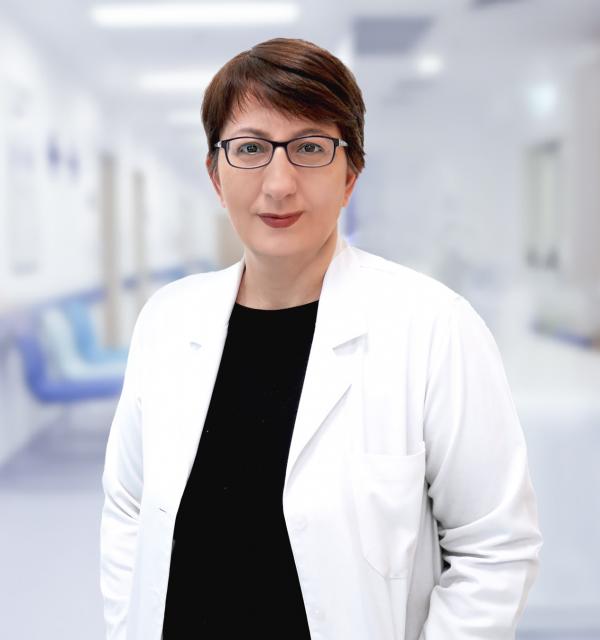Is Lymphoma (Lymph Cancer) a Treatable Disease?
“It is possible to achieve promising results with early diagnosis in the treatment of lymphoma”
Hematology Specialist Prof. Dr. Elif Birtaş Ateşoğlu, who says that lymphoma, which causes many people to fear when they hear its name, can actually be treated with promising results, stated, "Lymphoma is a treatable disease. As long as the diagnosis is made, we can achieve long-term survival with treatment." Describing night sweats to the extent of waking up to change clothes, losing more than 10% of body weight in 6 months, having unexplained fevers, and persistent itching as significant indicators for lymphoma, Prof. Dr. Ateşoğlu emphasized the importance of consulting a doctor for detailed evaluation when these symptoms occur.
Yeditepe University Koşuyolu Hospital Hematology Specialist Prof. Dr. Elif Birtaş Ateşoğlu, emphasizing that lymphoma is a treatable disease and promising results can be obtained with treatment, pointed out the importance of recognizing the symptoms of lymphoma very well despite the risk of being confused with different diseases.
Our expert explained that lymphoma, commonly known as lymph cancer, is a feared disease due to not being well recognized. However, our specialist also pointed out that it is mostly a group of diseases that often result in promising and good treatment responses. Our expert discussed the symptoms of the disease and treatment methods.
How is the Diagnosis of Lymphoma Made?
Hematology Specialist explains that patients often seek medical attention due to swelling in lymph nodes in different parts of the body. "After initial assessments, the diagnosis is confirmed through biopsy results. Because lymphoma has various subtypes, accurate diagnosis is crucial for the correct treatment. The course of the disease after treatment is entirely dependent on this pathological diagnosis," they said.
Age of Onset for Lymphoma
The Age of Onset for Lymphoma Varies According to the Subtype of Lymphoma
Hematology Specialist, stating that the age groups affected by lymphoma vary according to the subtype, said, "Lymphoma has two subtypes: Hodgkin lymphoma and Non-Hodgkin lymphoma. The frequency of Hodgkin lymphoma generally increases in individuals under 30 years old and those over 60 years old. Non-Hodgkin lymphoma, on the other hand, has subtypes seen in young people but is mostly a disease of advanced age. It is more common in individuals over 60 years old."
Hematology Specialist, stating that Non-Hodgkin lymphoma accounts for approximately 4% of all cancers, and Hodgkin lymphoma is rarer compared to Non-Hodgkin lymphoma, provided the following information about the reasons for the emergence of the disease: "Although the exact cause of lymphoma is not known, some environmental factors are thought to be involved. Radiation exposure and certain infections can lead to lymphoma. In the subgroup known as marginal zone lymphoma, there is a known association with certain bacteria in the onset of the disease. We can even control this type of lymphoma with antibiotic treatment."
Does Lymphoma Show Symptoms?
Patients often consult a doctor in the advanced stages because they don't notice the symptoms.
Our expert, stating that lymphomas are staged between stage 1 and stage 4, says, "In the early stages, we can observe involvement in limited areas based on the lymph node regions, or in widespread areas that we refer to as stage 3-4. While some subtypes of lymphoma can be detected in early stages with large lymph nodes, we diagnose some subtypes of lymphoma in advanced stages."
Our expert points out that routine laboratory tests may not detect lymphoma unless the patient notices it. "For example, symptoms like night sweats, weight loss, and fever can occur in the patient. Because the lymphatic system is widespread throughout the body, and the disease progression is rapid, if the patient does not notice it early and seek medical attention, the diagnosis can only be made in advanced stages," they stated.
Pay Attention to These Symptoms for Lymphoma
Hematology Specialist emphasized that, as in all types of cancer, early diagnosis in lymphoma also affects the success of treatment and survival rates. The specialist listed the signs to pay attention to for lymphoma: "If a person feels a lump-like growth in areas such as the neck, armpits, or groin, this is an important sign. They must consult a doctor during this period. Having this symptom does not necessarily mean that the person has lymphoma. However, it must be investigated. In addition, if the patient wakes up at night to change clothes due to sweating, loses more than 10% of their weight in 6 months, has unexplained fevers, and experiences persistent itching, these are important signs for lymphoma. If these signs are present, no time should be wasted."
Treatment of Lymphoma
Treatment for lymphoma should be started as soon as possible
Our expert, emphasizing the importance of knowing that lymphoma is a treatable disease with timely diagnosis and proper treatment, continued as follows: "Infections such as Toxoplasma, known as a problem transmitted from cats and dogs, or the Epstein-Barr virus, also known as the kissing disease, can commonly cause lymph node enlargement. Therefore, in the differential diagnosis, we first rule out these diseases. Subsequently, the diagnosis and treatment protocol are determined through biopsy. What our patients need to remember is that lymphoma is a cancer type with a very good treatment response. With the right diagnosis and proper treatment, patients can lead healthy lives for a very long time. Therefore, it is crucial to make the diagnosis and start treatment as soon as possible."
We achieve long-term disease-free survival in lymphoma
Our expert, mentioning that some types of lymphoma progress very slowly, stated, "In slow-progressing types, we can opt for a 'watch and wait' approach as long as the disease does not harm the patient, and patients can be kept under observation without treatment. However, for fast-progressing types, treatment methods involving chemotherapy and smart drugs are used. There are new developments in this field every day. Even if not used in the initial stage, there are many alternatives that can be used when the disease recurs. Beyond that, in some subtypes of lymphoma, when the disease recurs, it is necessary to treat the lymphoma again and then perform an autologous stem cell transplant. With this method, we can achieve long-term disease-free survival."
Is Lymphoma a Genetic Disease?
Lymphoma is not a genetic disease
Our expert, stating that lymphoma is not a type of cancer with hereditary transmission, said, "Therefore, having lymphoma in parents does not mean it will be transmitted to children. However, having a cancer case in the family increases the risk of cancer in other family members more frequently. Some genetic abnormalities can be observed in lymphoma patients. We can even use them for diagnosis, but these genetic abnormalities are disorders that occur along with the disease. They are not genetic disorders that will be passed from the patient to their child."




